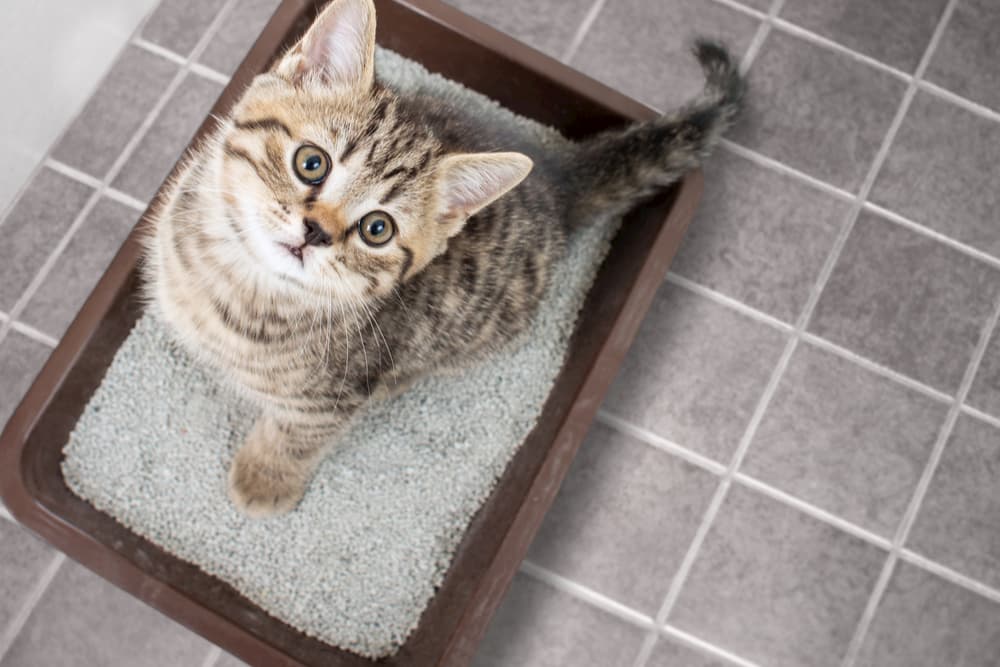Prevent Bathroom Emergencies: Never Flush Cat Poop Down Your Toilet - Professional Advice
Prevent Bathroom Emergencies: Never Flush Cat Poop Down Your Toilet - Professional Advice
Blog Article
We have found the article relating to Don’t flush cat feces down the toilet down the page on the net and accepted it made good sense to discuss it with you on my blog.

Introduction
As feline owners, it's necessary to be mindful of just how we dispose of our feline close friends' waste. While it might seem practical to flush pet cat poop down the bathroom, this practice can have harmful repercussions for both the atmosphere and human health.
Alternatives to Flushing
Thankfully, there are much safer and a lot more liable ways to take care of pet cat poop. Consider the complying with alternatives:
1. Scoop and Dispose in Trash
The most typical approach of taking care of cat poop is to scoop it into an eco-friendly bag and toss it in the garbage. Make sure to make use of a devoted trash scoop and get rid of the waste promptly.
2. Usage Biodegradable Litter
Go with biodegradable cat litter made from materials such as corn or wheat. These litters are environmentally friendly and can be securely disposed of in the garbage.
3. Hide in the Yard
If you have a backyard, take into consideration hiding cat waste in an assigned location away from veggie yards and water sources. Make sure to dig deep enough to avoid contamination of groundwater.
4. Mount a Pet Waste Disposal System
Buy an animal waste disposal system particularly created for cat waste. These systems utilize enzymes to break down the waste, minimizing odor and environmental impact.
Wellness Risks
In addition to ecological problems, flushing cat waste can additionally position health and wellness threats to human beings. Pet cat feces might include Toxoplasma gondii, a parasite that can trigger toxoplasmosis-- a possibly severe health problem, particularly for pregnant women and people with damaged immune systems.
Ecological Impact
Flushing cat poop presents dangerous virus and parasites into the water supply, posing a substantial danger to aquatic ecological communities. These pollutants can adversely affect aquatic life and concession water top quality.
Final thought
Responsible pet dog possession extends beyond providing food and sanctuary-- it additionally involves correct waste administration. By refraining from flushing feline poop down the bathroom and going with different disposal techniques, we can lessen our ecological impact and secure human health.
Why You Should Never Flush Cat Poop Down the Toilet
A rose by any other name might smell as sweet, but not all poop is created equal. Toilets, and our sewage systems, are designed for human excrement, not animal waste. It might seem like it couldn’t hurt to toss cat feces into the loo, but it’s not a good idea to flush cat poop in the toilet.
First and foremost, assuming your cat uses a litter box, any waste is going to have litter on it. And even the smallest amount of litter can wreak havoc on plumbing.
Over time, small amounts build up, filling up your septic system. Most litter sold today is clumping; it is made from a type of clay that hardens when it gets wet. Ever tried to scrape old clumps from the bottom of a litter box? You know just how cement-hard it can get!
Now imagine just a small clump of that stuck in your pipes. A simple de-clogger like Drano isn’t going to cut it. And that means it’s going to cost you big time to fix it.
Parasitic Contamination
Believe it or not, your healthy kitty may be harboring a nasty parasite. Only cats excrete Toxoplasma in their feces. Yet it rarely causes serious health issues in the cats that are infected. Most people will be fine too if infected. Only pregnant women and people with compromised immune systems are at risk. (If you’ve ever heard how women who are expecting are excused from litter cleaning duty, Toxoplasma is why.)
But other animals may have a problem if infected with the parasite. And human water treatment systems aren’t designed to handle it. As a result, the systems don’t remove the parasite before discharging wastewater into local waterways. Fish, shellfish, and other marine life — otters in particular — are susceptible to toxoplasma. If exposed, most will end up with brain damage and many will die.
Depending on the species of fish, they may end up on someone’s fish hook and, ultimately on someone’s dinner plate. If that someone has a chronic illness, they’re at risk.
Skip the Toilet Training
We know there are folks out there who like to toilet train their cats. And we give them props, it takes a lot of work. But thanks to the toxoplasma, it’s not a good idea.

As a reader about Don’t flush cat feces down the toilet, I assumed sharing that piece of writing was smart. Appreciated our piece of writing? Please share it. Help other people locate it. Many thanks for your time. Visit again soon.
Click Report this page